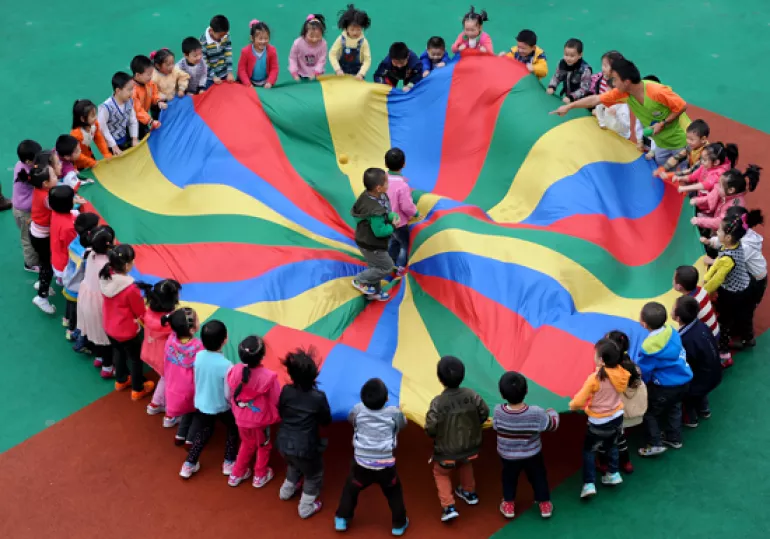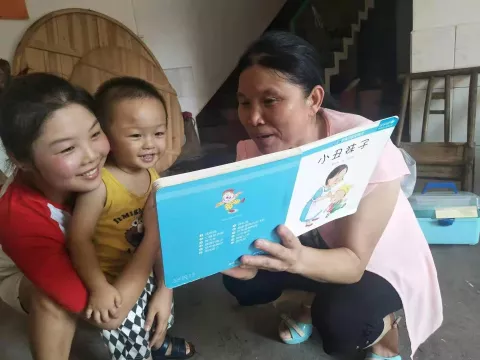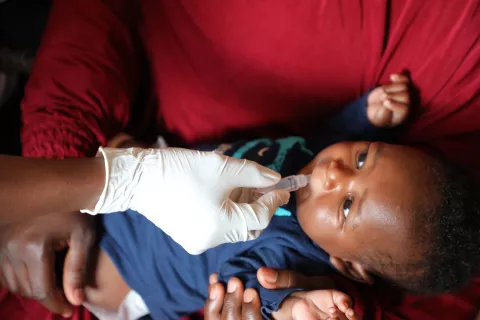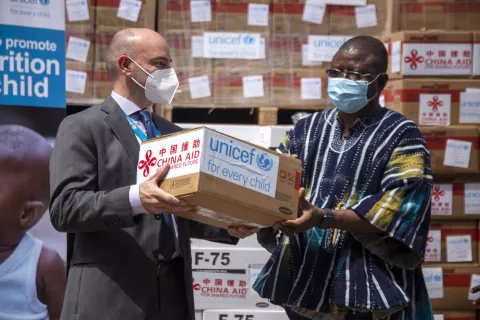UNICEF joins the Government of China to celebrate ECD Month
Building the best foundations of life for every child: A Critical Investment for Lifelong Learning and Development

- Available in:
- 中文
- English
Beijing, 22 May, 2015 – As China celebrates its fourth annual National Advocacy Month for Early Childhood Development, UNICEF joins the Government of China in promoting the importance of making sure every child, no matter where they live or where they are from, benefits from early childhood care and development.
As global evidence indicates, good nutrition, stimulation and play, love and nurturing, and protection from violence and abuse play a critical role in the growth and development of an individual child but are also fundamental to building a stronger, more stable and prosperous society.
The estimated returns on investment in Early Childhood Care and Education for disadvantaged children are as high as 1:17, proving it is one of most cost-effective strategies for reducing disparity.In the longer run it can also contribute to improved adult health, education and productivity.
In 2010, China's State Council issued the Development of Early Childhood Education Policy, which outlined an ambitious goal to increase access to kindergartens by developing a comprehensive Early Childhood Education (ECE) plan for reform in urban and rural areas to benefit the country's 45 million children aged 3 to up to 6 years old, which is one in seven children in the world.
Since the landmark decision to dramatically expand early childhood education, the country has witnessed a dramatic increase in the number of children attending kindergartens, from just 45 per cent in 2009 to 70.5 per cent by 2014. During this period, spurred by the central government allocation of 900 million US dollars, the number of kindergartens grew to 210,000 serving 40.5 million children.
"We applaud the strong leadership by the Government of China to accelerate access to these services especially in the western and central regions of the country, where the majority of vulnerable children live." said Tim Sutton, UNICEF China's Officer-in-Charge. "Globally, we still have a long way to go to convince everyone of how critical this period of life is in a child's life. We know millions of the poorest and most disadvantaged children are missing out from these investments. We hope China's experience and commitment can inspire other countries to do as China is doing."
UNICEF is advocating globally for early childhood development to be central to the post-2015 development agenda. An estimated 1 in 3 children under the age of five years old in low and middle income countries are not reaching their full potential. Globally, the gross enrolment ratio of pre-primary education is only 48 per cent, with rates as low as 17 per cent in some countries in Sub Saharan Africa.
China's participation at the World Education Forum, which yesterday approved the Declaration on Education 2030, highlighted the country's contribution to early childhood development and affirmed their global commitment to this agenda.
Wang Dinghua, Director General of the Basic Education Department of the Ministry of Education, presented China's success in early childhood education at the World Education Forum, a gathering of around 1,500 education experts that was held this week in the Republic of Korea. He shared China's success story in addressing equity and recommitted China's global commitment to making sure education is a central pillar of the post-2015 agenda.
UNICEF is working with the Ministry of Education to support the roll out of ECE through:
- Developing, testing and rolling out the national Early Learning Development Guidelines for 3–6 years. These guidelines help teachers and parents detail what skills a child should be able to develop at ages 3, 4 and 5. With practical help, teachers and parents are moving from rote learning, to more creative ways to engage and stimulate children through play, games and storytelling.
- Developing and trialing the Child Friendly Kindergarten Environmental Guidelines, with technical support from the National Research Center of School Construction Standards. They provide detailed requirements on how to create child-friendly spaces in kindergartens, including classrooms, stairs, canteens and toilets. The guidelines are being tested by relevant educational planning and construction administrators and will be further refined in the future.
- Establishing an online parenting portal that empowers parents and grandparents with the latest knowledge. In addition, to reach rural communities, offline computer kiosks have been made available where people can access practical information from good nutrition, to good sanitation and hygiene practise to making sure your child has the right care, stimulation and protection. This was also extremely well received as a best practice during the World Education Forum with significant interest from many countries in learning about the parenting portal and how to replicate.
"More children need to experience positive, responsive, sensitive and nurturing childrearing practices in safe and peaceful home environments. Families need to know about the importance of early nutrition, care and stimulation; when to bring a child to a doctor; to not physically punish a child; to recognize the significance of quality early learning programmes, and more," Mr. Sutton continued. "We are committed to working together with all partners to promote the holistic well-being of all young children here in China as well as around the world."
To promote ECD month, a social media campaign will be launched, using the hashtags #童年怎样才美好# (how to have a happy childhood) and #做个好爸妈# (be a good parent).
In order to support early childhood services for children, especially in emergency situations, UNICEF China is launching an Inspired Gifts campaign during the ECD month. Individuals and companies can contribute by buying gifts such as water purification tablets, story books, and ECD kits. These Inspired Gifts will be sent by UNICEF to areas where they are most needed to address inadequate nutrition, care and stimulation.
Media contacts
About UNICEF
UNICEF works in some of the world's toughest places, to reach the world's most disadvantaged children. Across 190 countries and territories, we work for every child, everywhere, to build a better world for everyone. For more information about UNICEF and its work for children visit www.unicef.org.
| Visit UNICEF China website: www.unicef.cn Follow us on Sina Weibo: http://weibo.com/unicefchina Tencent Weibo: http://t.qq.com/unicef Wechat: unicefchina |




